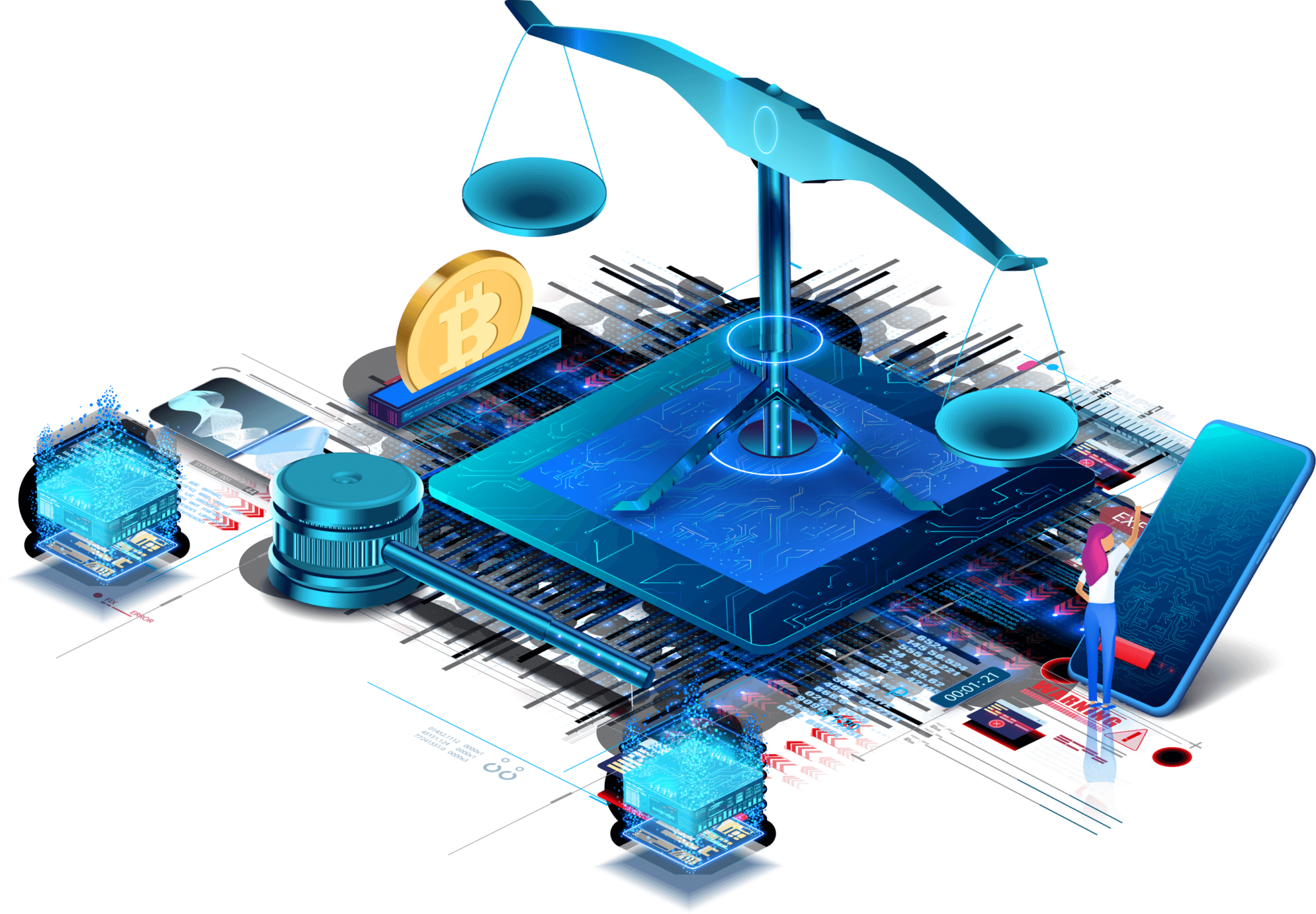Blockchain development for Legal
Utilize the capabilities of blockchain technology to streamline your legal operations.

Key challenges for the legal industry
The legal industry currently faces several issues such as an abundance of paperwork, inadequate security, transparency, and slow processes due to outdated methods and practices. Fortunately, blockchain technology can provide a solution by creating an automated, efficient, transparent, and tamper-proof environment for legal operations.
Data storage
Law firms recognize the importance of having a well-organized and easily searchable database, as they deal with piles of legal documents that claim property ownership, rental agreements, and other rights.
Documentary evidence
In some jurisdictions, there is a requirement for traditional documentary evidence with an auditable and provable chain of custody. However, these documents may become irrelevant at the time of their presentation.
Arbitration cases
Arbitration is a preferable alternative to court proceedings, but it is still a slow and cumbersome process. The average turnaround time for an arbitration case through FINRA is 14 months, and the agency currently has a backlog of 4,800 cases.
Notary services
General notaries are required to verify signatures on legal documents, such as leases or rental agreements, which makes the notarization process costly and time-consuming.
Manual work
Legal contracts still rely on physical signatures, which are handwritten and certified, leading to a time-consuming process that requires the physical presence of all parties involved.
Intellectual property
Violations of intellectual property, such as music, videos, or art, are a common occurrence in the industry due to the lack of access permission control.
Cutting-edge solutions

Blockchain for legal: applications
Automated agreement execution
Utilize self-executing ‘smart’ contracts on the blockchain to automate the process of contract signing. These contracts execute agreements between parties automatically when specific pre-arranged conditions are met.
Immutable data storage
The blockchain can provide a useful tool for arranging irreversible data storage where users can submit FOIA requests without the risk of altering data or accessing confidential information. This creates a tamper-proof database.
Efficient dispute resolution
Smart contracts can reduce the number of possible disputes between parties. When differences arise, smart contracts can automatically assign arbitrators from a pre-selected database, resulting in a cost-effective method of arbitration.
Tracking of evidence
Blockchain technology enables the recording of chain of custody for evidence. Evidence can be stored directly on the blockchain, or smart contracts can require that any changes in custody be recorded on-chain, resulting in a tamper-proof and auditable record.
Removal of intermediaries
By using the blockchain, there is no need for notary services. Every document on the blockchain is verified by a digital signature, which serves as evidence of its authenticity, eliminating the need for intermediaries.
Safeguarding of property
Users can register their intellectual property rights with unique IDs, which helps minimize the chances of violation and fraud. This provides protection for property rights and ensures that ownership is clearly established.
How can smart contracts revolutionize the legal industry?

Get a FREE quote
Blockchain opportunities for the legal industry
Automated issuance of assets
Maintenance of public records
Compliance with regulations
Transform your legal operations with SmartBlocks
Expert guidance
Customizable blockchain solutions
Whether you require a public, private, or hybrid blockchain for your legal documents, SmartBlocks can create a white-label blockchain protocol that is customized to your specific needs.
Decentralized applications
Other Blockchain Solutions
Why work with us
Extensive expertise
HIGHLY-SKILLED DEV TEAM
All our tech solutions are built by the in-house cross-functional team. The strongest blockchain specialists on the market will be working on your project
CUTTING-EDGE SOLUTIONS
The SmartBlocks team is pioneering the frontiers of blockchain tech and employing it to drive your company’s success.